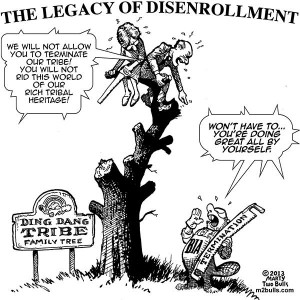Much is being made of the new U.S. Department of the Interior leasing regulation, 25 C.F.R. § 162.017, which makes clear that "permanent improvements" to leased Indian land are “not subject to any fee, tax, assessment, levy, or other charge imposed by any State or political subdivision of a State." Related FAQs from those in tribal economic development, include: What is a permanent improvement? What makes an improvement permanent? And most commonly, does [insert type of real or personal property] constitute a tax-exempt permanent improvement? This blog attempts to help folks answer such pivotal questions from a legal point of view.
25 U.S.C. § 465 of course explicitly exempts Indian trust land from state and local taxation. In Mescalero Apache Tribe v. Jones, it was held that Section 465 exempts not only tribal land from state and local taxation, but any tax that the Court deems to be an equivalent to a tax on land, including any “permanent improvements” thereon. 411 U.S. 145, 158 (1973).
Such is true regardless of how the state characterizes those improvements. See Drye v. United States, 528 U.S. 49, 52-53 (1999) (federal law, not state law, defines “property and rights to property” for purposes of a federal tax statute); Confederated Tribes of Chehalis Reservation v. Thurston County Bd. of Equalization, 724 F.3d 1153, 1158 (9th Cir. 2013) (“[I]t is irrelevant whether permanent improvements constitute personal property under [state] law.”).
Under federal law, there is no one definition of a “permanent improvement” for taxation purposes. PPL Corp. v. C.I.R., 135 T.C. 176, 193 (U.S. Tax Ct. 2010).
Instead, courts look to six factors, the “primary focus” of which “is the question of the permanence of depreciable property and the damage caused to it or to realty upon removal of the depreciable property.” Id. (quoting Trentadue v. C.I.R., 128 T.C. 91, 99 (U.S. Tax Ct. 2007)). These factors are as follows:
(1) “Is the property capable of being moved, and has it in fact been moved?” Whiteco Industries Inc. v. Commissioner of Internal Revenue, 65 T.C. 664, 672 (U.S. Tax Ct. 1975).
(2) “Is the property designed or constructed to remain permanently in place?” Id.
(3) “Are there circumstances which tend to show the expected or intended length of affixation, i.e., are there circumstances which show that the property may or will have to be moved?” Id.
(4) “How substantial a job is removal of the property and how time-consuming is it? Is it ‘readily removable’?” Id. at 673.
(5) “How much damage will the property sustain upon its removal?” Id.
(6) “What is the manner of affixation of the property to the land?” Id.
There you have it. So is your improvement permanent?
Gabriel “Gabe” Galanda is the Managing Partner at Galanda Broadman. He is an enrolled member of the Round Valley Indian Tribes of Covelo, California. Gabe can be reached at 206.300.7801 or gabe@galandabroadman.com.







